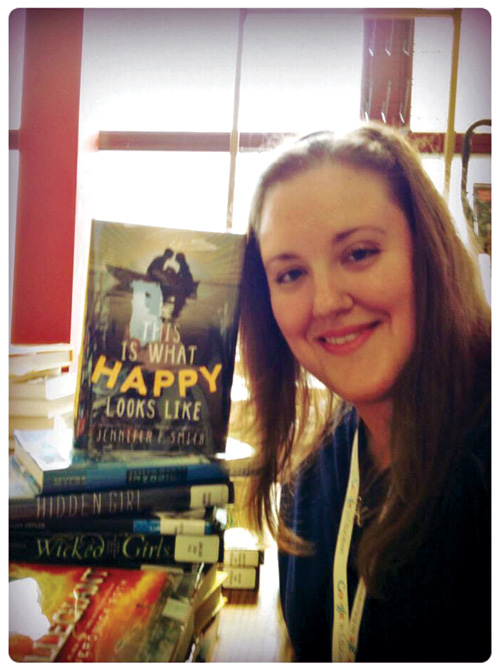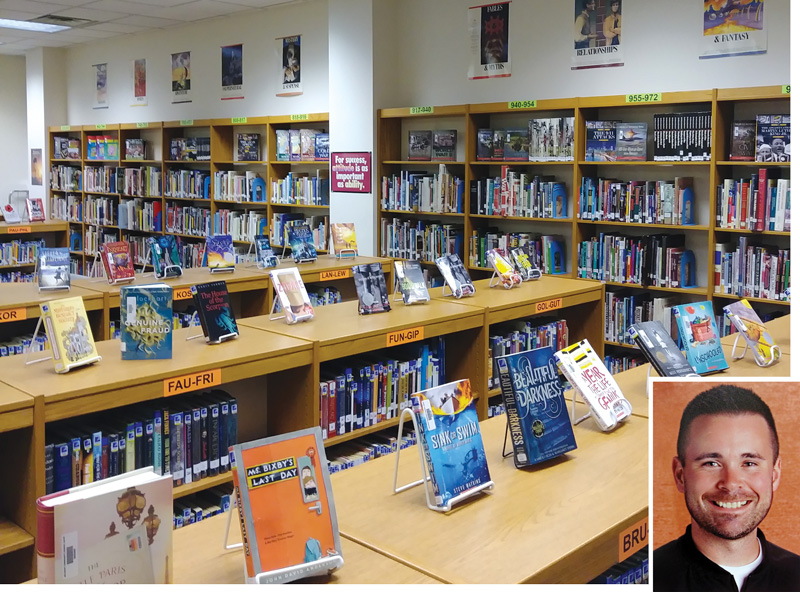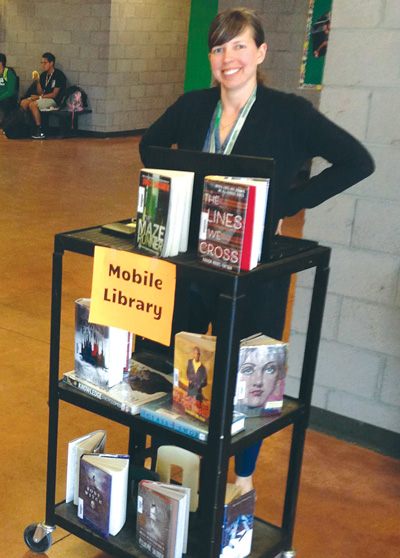First Day Ready: For Librarians Starting at a New School, Tips from the Trenches
Overhauling library systems, forging alliances, finding communities, weathering suspicion, and weeding—sometimes thousands of titles. It’s all in the first year’s work for many librarians starting at a new school.
|
|
|
Illustration: uzenzen/iStock |
Overhauling library systems, forging alliances, finding communities, weathering suspicion, and weeding—sometimes thousands of titles. It’s all in the first year’s work for many librarians starting at a new school. The most valuable thing to do is to establish administrative support, they agree. Read about these librarians’ experiences—and what they learned.
Master the basics, with resilience
Nearly 1,300 books were unaccounted for in the Belmont (WI) Community Schools (BCS) library catalog when librarian Trevor Nichols arrived last October and ran the first inventory since 2008. “The administration knew there was a lot of work to be done,” says Nichols, previously a special education paraprofessional at BCS, serving pre-K through 12th grade. The former librarian “had stopped using our automated system around 2015–16.”
Fortunately, the “amazing” administration saw the need for a revamped media center. Collection development had been neglected, books were all over—many not cataloged—and students were unfamiliar with the Dewey Decimal System, Nichols says. He took student requests and involved the whole school in updating the collection.
His changes took some getting used to. “I had different expectations for the students,” he says. “I made them check books out and issued fines. Our previous librarian couldn’t remember the password to log in to Destiny. Her way of checking books out was to have the student write their name and the book title on a piece of paper, or just use the honor system.”
At the end of the year, Nichols received “many compliments on the library from students, colleagues, and administration. One student came up and thanked me for allowing the library to be a library.” While his work felt overwhelming at times, focusing on core goals yielded visible improvements every day. “Don’t stress,” Nichols advises. “You will figure out the basics...in time. Have fun with it!”
During Addie Matteson’s first year as a library media specialist at a public elementary school, she and the principal were the only new hires in the building. The school and faculty had changed very little since opening in 1999, says Matteson. “I tried very hard to observe and learn about how the library was used by teachers and students.”
In addition to launching a massive weeding project, Matteson started making purchasing decisions that were “student-centered instead of teacher-centered. For example, I would buy graphic novels series but declined to buy five copies of a picture book, so all the teachers in a grade could teach it at the same time.”
Those initiatives created “a lot of pushback from the teachers, and my own aides,” she says. Her second year, “it culminated in a few teachers bringing complaints about me to our union rep, and from there, [they had] a secret meeting with the principal. Since no one had ever weeded books from the library before, they thought it might be illegal.”
But the principal “told them that I was doing exactly what I was hired to do,” says Matteson. “From that day, I knew, even if everyone questioned my judgment, she had my back. As I dissolved the baskets of leveled books, genrefied the fiction section, bought new furniture, created a maker space, brought in robots, taught fifth graders to rap, and weeded thousands of outdated books, she greenlit every step.”
“I had to teach [the principal] about library best practices, as she taught me about literacy education best practices,” adds Matteson, noting that having a supportive principal is crucial.
|
|
|
Krista Welz with new books for her library ordered by the Board of Education. Photo courtesy of Krista Welz |
Find your people
Krista Welz, library/media specialist at North Bergen (NJ) High School (NBHS), credits her time at a public library for developing communication and organizational skills. During her first months at NBHS, she increased circulation by 120 percent—primarily by “inviting freshman classes in for orientation and moving the books to a more visible area,” she says.
Welz is a dedicated tech educator but in her new post, “This wasn’t easy. I was on my own,” she says. Welz looked to Twitter for professional development. Connecting with other librarians and educators, “I became better at my job.” Welz and her network created Edcamp Urban (edcampurban.org) for professional development.
“Make Twitter your constant go-to tool for professional advice,” Welz says. “Often, you may feel internally isolated in terms of professional development. Twitter will help you engage with other educators, provide bite-size PD, learn about conferences, and just have somewhere to turn to for advice.”
Online connection has also been vital to Nikki Robertson. Last year, Robertson moved from an Alabama high school to Winkley Elementary School in Leader, TX—and from having full-time aides to no full-time aide, plus no district library supervisor to a supportive one.
“Being a school librarian can be a shockingly isolating profession,” says Robertson, also president of the ISTE Librarians Network. While she prioritized reaching out to other librarians in her district, “Twitter is how I went from being a burned-out educator to feeling like I never want to do anything else but teach.” Robertson recommends #TLChat #FutureReadyLibs #ISTELib, plus several Twitter Chats and Facebook groups. (Also read: "Starting at a New School? Here Are Five Essential Tips.")
“I worked at a frenzied pace to try to meet my own unrealistic goals,” adds Robertson. Aside from weeding and genrefying, “I ripped shelving off the walls, moved and discarded furniture, and took apart and rearranged the circulation desk”—while also starting a morning news show, creating maker space-style centers, and introducing new tech.
She advises others “to choose just one goal for each school year. Celebrate the cool things you are doing rather than beating yourself up over the things you aren’t.” While staying connected is vital, it can also make librarians feel that they’re not doing enough, Robertson notes. “As long as students are your main focus, you’re moving in the right direction.”
|
|
|
Trevor Nichols involved students in revamping his school library. Photo courtesy of Trevor Nichols |
Focus on slow and steady change
Diana Rendina was hired “to revitalize the program, update the library, and bring maker activities” to Tampa (FL) Preparatory School, a private 6–12 institution, in 2017–18. Previously a media specialist at a Tampa Title I school, she says that managing expectations was challenging. “I’d forgotten how much time it takes to get your program where you want it to be.”
Halfway through her first year, she needed to reevaluate her goals “and recognize that it was OK if I didn’t meet every single one in my first year.” Her goals included starting a Makers Club, hosting book clubs, collaborating with at least three to four teachers, and starting to weed, genrefy, and plan for future purchases. Year two will build on this with a library space redesign, more maker and tech programming, and assembling a Battle of the Books team.
“Don’t barge in and try to change everything at once,” she says. “Focus on slow and steady change.”
Hired by a supportive vice-superintendent, Arielle Goldstein struggled to establish rapport with her library aide when hired as a librarian at West Morris (NJ) Regional High School District in 2017–18. “During interviews, I began getting warnings about working with a resistant aide,” says Goldstein, previously an elementary school librarian. Still, she started “with a bubbly, happy personality” and worked with the aide to revise out-of-date policies, such as “recording students’ names on a checkout card in the back of a book, a huge privacy violation.”
When Goldstein began weeding nearly half of a 14,000-item collection, there was strong resistance, and her aide “jumped on the bandwagon” of negative feedback from teachers and administration. Goldstein charged on; a new superintendent was impressed by the higher circulation numbers.
Goldstein also hoped to foster a stronger reading culture. She met with the English department head, whose attitude was, “It’s too hard to implement; there are too many students, too many teachers.’ I didn’t have the experience of tackling this change to back up my enthusiasm,” she says.
Goldstein recommends asking questions in the interview stage to become informed about school culture and inquiring about how best to work with teaching staff.
|
|
|
When Rachel Exposito’s school library closed to be used as a standardized testing site during her first year, she stocked and circulated a mobile library cart with books and a laptop. Photo courtesy of Rachel Exposito |
Foster a student-centered culture
Rachel Exposito, high school librarian and district library manager for Pojoaque Valley (NM) School District, walked into her new position three years ago to find a library “that was not welcoming at all,” she says. “There were posters with a huge list of rules, including ‘Don’t visit MySpace [on school computers.]’ One sign just said ‘Make Wise Choices.’”
“There’s a story about a student who came to check out a book, but the library aides weren’t present. The student left with the book and got in trouble for ‘stealing’ it,” she says. To make the library inviting, “I keep my doors wide open, encourage students to hang out, play games, and discover new things.” Administration-wise, “I had lots of support and freedom.”
She took a ruthless approach to weeding. Previous library staff had been “afraid to let anything go out of a fear [of not getting new material].” She kept staff and administration informed and offered weeded items to anyone who wanted them.
To engage students, Exposito quickly established her library club, a hybrid book club and student advisory board. The enthusiastic students provided feedback—plus hands-on labor—for a library redesign. The club now runs book sales and Scholastic Book Fairs; proceeds buy new library books.
In her first year at Marshall (TX) High School, Ruth Jones stressed her kid-centered approach. “In everything that I did, I reminded everyone that I’m ‘about the kids, for the kids, and by the kids,’” says Jones, formerly district librarian for the Marshall ISD. At every step, “I talked to the principal about what things could and should look like. She didn’t know much about library science, and I needed us to support each other in order to help our kids and teachers be more successful.”
Previously, there were “low to no expectations” for the library. “Kids rarely came, [and] there was lack of respect for the library staff and facility.” Her to-do list ranged from reorganizing the collection to clearing pests that had invaded the space. Establishing structure, systems, and “the awareness that a living library with a voice exists, my goal [was to] make the library an academic, self-help, empowering venue.”
First-year events included a mandated tour where teachers could place sticky notes in library areas “where they found valid books; many discoveries were made.” Honoring teacher requests strengthened rapport. Jones “drastically” increased interactions with students, offering “random incentives for touring, participating, and giving feedback on projects. I asked questions about what they checked out, what they were reading, what they were looking for.” Her new programs include Hispanic Heritage Month and a book speed-dating program complete with prizes. Jones also bought strategy games to encourage students to have phone-free time in their day.
While a new librarian’s checklist may contain myriad details, remember to take the right approach for the big picture, Robertson says. “Have fun, don’t take yourself too seriously, and always put serving others with joy—even when you don’t feel joyful—before all other tasks. Management tasks can wait. People are more important.”
Also read: "From Classroom to Circulation Desk: Lessons from a Teacher-Turned-Librarian"
April Witteveen is a community librarian with the Deschutes Public Library system in central Oregon.
RELATED
The job outlook in 2030: Librarians will be in demand
The job outlook in 2030: Librarians will be in demand
ALREADY A SUBSCRIBER? LOG IN
We are currently offering this content for free. Sign up now to activate your personal profile, where you can save articles for future viewing









Add Comment :-
Be the first reader to comment.
Comment Policy:
Comment should not be empty !!!